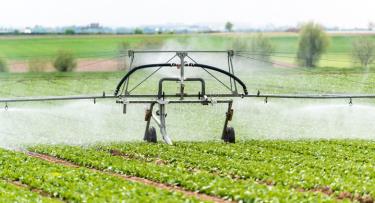 Four significant documented outbreaks of E.coli O157:H7 STEC occurred in the U.S. between 2017 and 2019 with over 500 diagnosed cases and a number of fatalities. The advisory boards of the Leafy Greens Marketing Agreement (LGMA) involving California and Arizona growers have since developed safety measures to reduce the probability of foodborne infection with STEC associated with leafy greens.
Four significant documented outbreaks of E.coli O157:H7 STEC occurred in the U.S. between 2017 and 2019 with over 500 diagnosed cases and a number of fatalities. The advisory boards of the Leafy Greens Marketing Agreement (LGMA) involving California and Arizona growers have since developed safety measures to reduce the probability of foodborne infection with STEC associated with leafy greens.
Since water contaminated with fecal material of bovine origin from CAFOs is regarded as the source of E.coli, all affiliated producers, the CDC and state university extension advisors have concentrated on irrigation water. The LGMA board determined that any water from an open source, such as a canal or reservoir, applied through overhead application, must be treated to eliminate pathogens at least three weeks before harvest. The regulations include monitoring of water with samples collected through the irrigation system. Furrow-irrigation should no longer allow water to come into contact with an edible portion of a plant. Best practices for cleaning harvest equipment and containers will be followed. Portable bathroom facilities for field workers must be available.
The recommendations developed by the LGMA Board will be approved by the California Department of Food and Agriculture and the Association will then commence educating members on compliance with new standards of operation.
 The measures suggested relate mainly to contamination in the field. There is as yet no method of inactivating STEC on leafy greens that may have been subjected to E.coli contamination during cultivation and harvest. Land Grant universities are working on possible treatments, including sprays and immersion. Ultimately some form of physical decontamination, possibly in the form of electron beam treatment may be developed providing that the organoleptic properties of leafy greens are not affected.
The measures suggested relate mainly to contamination in the field. There is as yet no method of inactivating STEC on leafy greens that may have been subjected to E.coli contamination during cultivation and harvest. Land Grant universities are working on possible treatments, including sprays and immersion. Ultimately some form of physical decontamination, possibly in the form of electron beam treatment may be developed providing that the organoleptic properties of leafy greens are not affected.